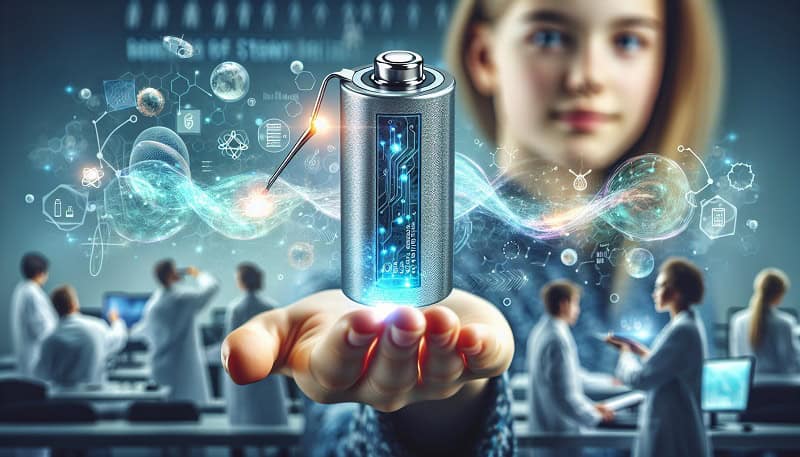Researchers Develop Sodium Battery Capable of Rapid Charging in Just a Few Seconds
Sodium (Na) has recently gained attention as a potential alternative to lithium (Li) in battery technologies due to its abundance. However, existing sodium-ion batteries face limitations such as lower power output and longer charging times. A research team, led by Professor Jeung Ku Kang from KAIST, has created a hybrid sodium-ion battery. This battery has high energy and power. It can also be charged quickly Sodium Battery.
The research was published in Energy Storage Materials. It presents a new hybrid energy storage system. This system uses anode materials from batteries and cathode materials from supercapacitors. This mix gives the device high storage capacities and fast charge-discharge rates. It could be a good alternative to traditional lithium-ion batteries.

Anode Material with Improved Kinetics
To achieve this, the team utilized two distinct metal-organic frameworks for the optimized synthesis of hybrid batteries. This method resulted in a better anode material. It was made by adding small, active materials to porous carbon. This carbon came from metal-organic frameworks. Also, they created a high-capacity cathode material. When combined with the anode, it made a battery that worked better. This mix of materials led to quicker energy storage and more capacity. This was an improvement over older sodium-ion batteries.
The development of this hybrid battery is a significant step towards the use of sodium-ion batteries in various applications. Its high energy and power density make it suitable for use in electric vehicles, renewable energy storage, and portable electronics.
This research provides a new option besides lithium-ion batteries. It shows how metal-organic frameworks can create better energy storage materials. The team’s work advances sodium-ion battery technology. This brings us closer to a sustainable future.
For other exciting developments in science, technology, engineering, and mathematics (STEM), visit ENTECH magazine at https://entechonline.com/. Join us as we explore the wonders of science and help teenagers discover their passion for STEM education.












